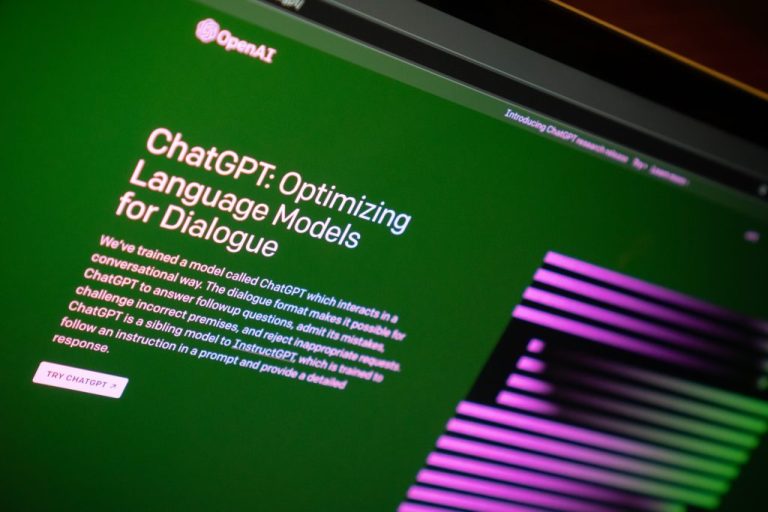Unleashing Agentic AI: The Next Evolution in Intelligent Technology
Beyond Acceleration: The Rise of Agentic AI
We find ourselves at a pivotal moment in the AI landscape. A recent study by McKinsey indicates that businesses must transition from mere automation to AI-driven transformation in order to remain competitive. While the phase of accelerating processes with AI is not yet over, we are entering a new era that emphasizes not just efficiency but also the replacement and creation of workflows. This marks the advent of Agentic AI.
Truly autonomous AI agents have the potential to completely transform operations. These systems are designed to act independently, make informed decisions, and adapt to changing circumstances. Rather than relying solely on conversational interfaces, these agents will proactively manage tasks, navigate complex IT frameworks, and streamline business processes.
From Acceleration to Transformation
Up to this point, AI has primarily been utilized to boost existing processes, such as implementing chatbots for customer service enhancements or using AI analytics to fine-tune workflows. While these applications increase efficiency, they are insufficient for long-term success. The real potential lies in revolutionizing outdated systems and developing innovative capabilities that were previously unattainable.
For instance, in the networking sector, AI could automate troubleshooting and bolster security measures. Imagine AI not merely assisting but autonomously predicting failures, proactively reconfiguring networks to avert service disruptions in real time, and optimizing performance without human oversight. This level of autonomy will be crucial for driving productivity and fostering innovation—this is the essence of Agentic AI.
Navigating the AI Regulatory Landscape
As AI’s capabilities expand, so too will the regulatory framework governing its use. The introduction of the EU AI Act, along with other global regulations, requires businesses to navigate new compliance issues concerning transparency, bias reduction, and ethical deployment. AI governance must now be a priority.
AI systems should incorporate built-in compliance measures, robust data privacy protections, and features that ensure explainability, thereby fostering trust among users and regulators. Implementing zero-trust security models is equally essential to mitigate risks, enforce stringent access controls, and guarantee that AI-generated decisions are both auditable and secure.
The Importance of AI Literacy
The success of Agentic AI will hinge upon more than just technical prowess; it demands collaboration among leadership, developers, and end-users. As AI technologies grow more sophisticated, understanding AI’s potentials and limitations becomes critical. A report from the ICT Workforce Consortium notes that 92% of information and communication technology jobs are poised for significant transformation due to AI advancements. Without prioritizing AI education, companies risk a disconnect between those deploying AI and those utilizing it.
This misalignment can breed distrust, slow adoption rates, and ineffective implementations, which ultimately affect the bottom line. Therefore, fostering AI literacy at all organizational levels is essential for unlocking the full capabilities of Agentic AI.
As we move forward into this new era of AI, businesses should learn from previous experiences: prioritize applied use cases that deliver measurable returns on investment. The time for experimenting with AI merely for innovation’s sake is fading. Future AI initiatives will need to demonstrate their value, such as through autonomous network optimization. These systems not only automate tasks but also continuously analyze network data, anticipating congestion and autonomously optimizing performance.
Adjusting configurations can lead to enhanced performance. By offering proactive insights and making real-time adjustments, AI-powered solutions can assist companies in averting problems and service disruptions before they manifest. This degree of autonomy in AI minimizes the need for human intervention while simultaneously boosting overall security and operational efficiency. Recognizing and utilizing high-value, impactful applications of Agentic AI will be essential for success.
Trust as the Adoption Hurdle
As we embark on a new era of AI, the element of trust is critical for its widespread adoption. Users need to be assured that AI-generated decisions are accurate, fair, and transparent. Even the most sophisticated AI systems will encounter resistance without clear visibility into their processes. This need for transparency becomes even more crucial as AI evolves from being a supportive tool to making independent decisions. Whether AI systems are tasked with managing IT resources or enhancing customer engagement, organizations must ensure that the decisions made by AI are verifiable, unbiased, and aligned with their strategic goals. Without this level of transparency and accountability, companies risk facing pushback from both employees and customers.
The Future of AI
Looking forward to 2025, the potential for AI is promising. As its capabilities mature, the success of AI will hinge on how well businesses, governments, and individuals adapt to its growing integration into daily life. Beyond merely improving efficiency and automation, AI stands to become a significant catalyst for intelligent decision-making, problem-solving, and innovation. Organizations that effectively leverage Agentic AI—striking a balance between autonomy and oversight—are likely to reap the highest rewards. However, achieving success necessitates a commitment to transparency, education, and ethical practices to build trust and ensure that AI becomes a genuine facilitator of progress. AI is no longer simply an accelerant; it is a transformative force reshaping our workflows, communications, and interactions with technology.
To learn more about AI and big data from industry specialists, consider exploring the AI & Big Data Expo, scheduled to occur in Amsterdam, California, and London. This extensive event will be co-hosted with other prominent events, including the Intelligent Automation Conference, BlockX, Digital Transformation Week, and Cyber Security & Cloud Expo.
Discover additional upcoming enterprise technology events and webinars powered by TechForge.
AI Empowers the Transition to Strategic Leadership
Artificial Intelligence (AI) is marking a pivotal change in the way organizations approach leadership. Rather than merely enabling functions, AI allows leaders to adopt a more strategic perspective, enhancing decision-making processes and optimizing resource management.
Addressing Hallucinations in AI Technologies
A recent initiative from MIT focuses on teaching AI to recognize its limitations. This educational approach aims to mitigate the issue of AI ‘hallucinations’, or instances when artificial intelligence generates incorrect or nonsensical information. The goal is to foster a clearer understanding of when the technology is unsure, enhancing its reliability.
Join Our Tech Community
Stay updated with the latest advancements in technology. Subscribe to receive premium content and essential news directly to your inbox.
Popular Articles
- The Role of Machine Learning in Enhancing Cloud-Native Container Security
- Innovative Machine Learning Implementations in Business
- Use of AI and Bots to Fraudulently Increase Music Streams
- Benefits of Collaborating with Outsourced Developers
Latest Updates
Keep an eye on this space for the newest insights and developments in tech. Emerging trends and advancements await.
Artificial Intelligence, Companies, Development, Energy, Ethics & Society, Healthcare, Industries, Telecoms
Tackling hallucinations: MIT spinout teaches AI to admit when it’s clueless
Applications, Artificial Intelligence, Companies, Healthcare, Industries
Diabetes management: IBM and Roche use AI to forecast blood sugar levels
Applications, Artificial Intelligence, Chatbots, Companies, DeepSeek, Ethics & Society, Research, Virtual Assistants
DeepSeek’s latest AI model a ‘big step backwards’ for free speech
Subscribe to receive all our premium content and the latest tech news directly to your inbox.
Categories: Applications, Companies, Deep & Reinforcement Learning, Enterprise, Ethics & Society, Industries, Legislation & Government, Machine Learning, Privacy, Research, Robotics, Security, Surveillance, Sponsored Content
Other Publications: Explore All Developer, IoT News, Edge Computing News, MarketingTech, CloudTech, The Block, Telecoms, Sustainability News, TechHQ, TechWire Asia
AI News is part of TechForge.
Countries Available
Please select a country from the list below:
- United Kingdom
- United States
- Afghanistan
- Albania
- Algeria
- American Samoa
- Andorra
- Angola
- Anguilla
- Antarctica
- Antigua and Barbuda
- Argentina
- Armenia
- Aruba
- Australia
- Austria
- Azerbaijan
- Bahamas
- Bahrain
- Bangladesh
- Barbados
- Belarus
- Belgium
- Belize
- Benin
- Bermuda
- Bhutan
- Bolivia
- Bonaire, Sint Eustatius and Saba
- Bosnia and Herzegovina
- Botswana
- Bouvet Island
- Brazil
- British Indian Ocean Territory
- Brunei Darussalam
- Bulgaria
- Burkina Faso
- Burundi
- Cambodia
- Cameroon
- Canada
- Cape Verde
- Cayman Islands
- Central African Republic
- Chad
- Chile
- China
- Christmas Island
- Cocos Islands
- Colombia
- Comoros
- Congo
- Congo, Democratic Republic of the
- Cook Islands
- Costa Rica
- Croatia
- Cuba
- Curaçao
- Cyprus
- Czechia
- Côte d’Ivoire
- Denmark
- Djibouti
- Dominica
- Dominican Republic
- Ecuador
- Egypt
- El Salvador
- Equatorial Guinea
- Eritrea
- Estonia
- Eswatini
- Ethiopia
- Falkland Islands
- Faroe Islands
- Fiji
- Finland
- France
- French Guiana
- French Polynesia
- French Southern Territories
- Gabon
- Gambia
- Georgia
- Germany
- Ghana
- Gibraltar
- Greece
- Greenland
- Grenada
- Guadeloupe
- Guam
- Guatemala
- Guernsey
- Guinea
- Guinea-Bissau
- Guyana
- Haiti
- Heard Island and McDonald Islands
- Holy See
- Honduras
- Hong Kong
- Hungary
- Iceland
- India
- Indonesia
- Iran
- Iraq
- Ireland
- Isle of Man
- Israel
- Italy
- Jamaica
- Japan
- Jersey
- Jordan
- Kazakhstan
- Kenya
- Kiribati
- Korea, Democratic People’s Republic of
- Korea, Republic of
- Kuwait
- Kyrgyzstan
- Lao People’s Democratic Republic
- Latvia
- Lebanon
- Lesotho
- Liberia
- Libya
- Liechtenstein
- Lithuania
- Luxembourg
- Macao
- Madagascar
- Malawi
- Malaysia
- Maldives
- Mali
- Malta
- Marshall Islands
- Martinique
- Mauritania
- Mauritius
- Mayotte
- Mexico
- Micronesia
- Moldova
- Monaco
- Mongolia
- Montenegro
- Montserrat
- Morocco
- Mozambique
- Myanmar
- Namibia
- Nauru
- Nepal
- Netherlands
- New Caledonia
- New Zealand
- Nicaragua
- Niger
- Nigeria
- Niue
- Norfolk Island
- North Macedonia
- Northern Mariana Islands
- Norway
- Oman
- Pakistan
- Palau
- Palestine, State of
- Panama
- Papua New Guinea
- Paraguay
- Peru
- Philippines
- Pitcairn
- Poland
- Portugal
- Puerto Rico
- Qatar
- Romania
- Russian Federation
- Rwanda
- Réunion
- Saint Barthélemy
- Saint Helena, Ascension and Tristan da Cunha
- Saint Kitts and Nevis
- Saint Lucia
- Saint Martin
- Saint Pierre and Miquelon
- Saint Vincent and the Grenadines
- Samoa
- San Marino
- Sao Tome and Principe
- Saudi Arabia
- Senegal
- Serbia
- Seychelles
- Sierra Leone
- Singapore
- Sint Maarten
- Slovakia
- Slovenia
- Solomon Islands
- Somalia
- South Africa
- South Georgia and the South Sandwich Islands
- South Sudan
- Spain
- Sri Lanka
- Sudan
- Suriname
- Svalbard and Jan Mayen
- Sweden
- Switzerland
- Syria Arab Republic
- Taiwan
- Tajikistan
- Tanzania, the United Republic of
- Thailand
- Timor-Leste
- Togo
- Tokelau
- Tonga
- Trinidad and Tobago
- Tunisia
- Turkmenistan
- Turks and Caicos Islands
- Tuvalu
- Türkiye
- US Minor Outlying Islands
- Uganda
- Ukraine
- United Arab Emirates
- United Kingdom
- United States
- Uruguay
- Uzbekistan
- Vanuatu
- Venezuela
- Viet Nam
- Virgin Islands, British
- Virgin Islands, U.S.
- Wallis and Futuna
- Western Sahara
- Yemen
- Zambia
- Zimbabwe
- Åland Islands
Permissions
By providing your email address, you consent to our Terms and Privacy Notice.
This field is meant for validation and should be left blank.







